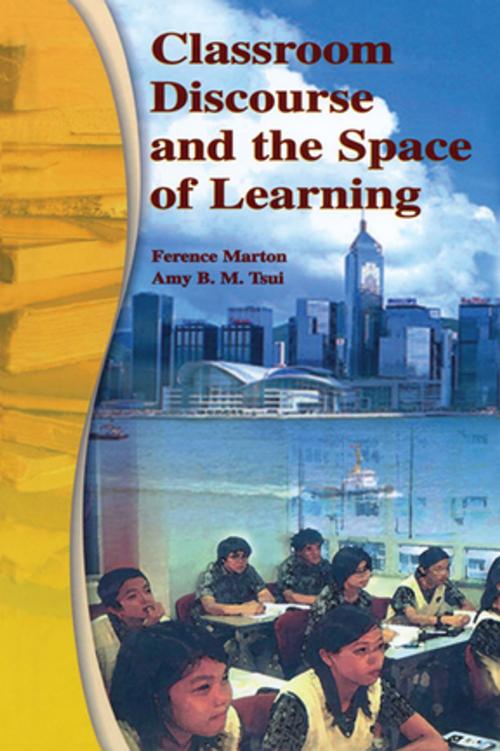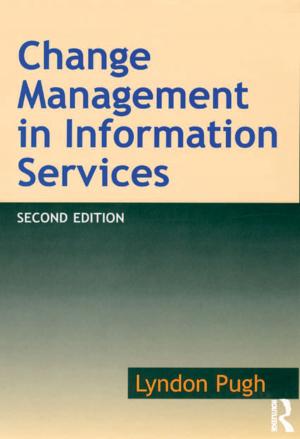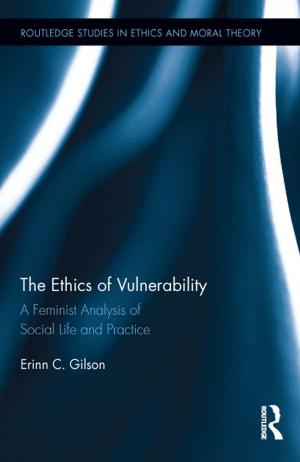Classroom Discourse and the Space of Learning
Nonfiction, Reference & Language, Education & Teaching, Educational Theory, Educational Psychology, Language Arts, Communication| Author: | Ference Marton, Amy B.M. Tsui, Pakey P.M. Chik, Po Yuk Ko, Mun Ling Lo | ISBN: | 9781135642334 |
| Publisher: | Taylor and Francis | Publication: | May 20, 2004 |
| Imprint: | Routledge | Language: | English |
| Author: | Ference Marton, Amy B.M. Tsui, Pakey P.M. Chik, Po Yuk Ko, Mun Ling Lo |
| ISBN: | 9781135642334 |
| Publisher: | Taylor and Francis |
| Publication: | May 20, 2004 |
| Imprint: | Routledge |
| Language: | English |
Classroom Discourse and the Space of Learning is about learning in schools and the central role of language in learning. The investigations of learning it reports are based on two premises: First, whatever you are trying to learn, there are certain necessary conditions for succeeding--although you cannot be sure that learning will take place when those conditions are met, you can be sure that no learning will occur if they are not. The limits of what is possible to learn is what the authors call "the space of learning." Second, language plays a central role in learning--it does not merely convey meaning, it also creates meaning. The book explicates the necessary conditions for successful learning and employs investigations of classroom discourse data to demonstrate how the space of learning is linguistically constituted in the classroom.
Classroom Discourse and the Space of Learning:
*makes the case that an understanding of how the space of learning is linguistically constituted in the classroom is best achieved through investigating "classroom discourse" and that finding out what the conditions are for successful learning and bringing them about should be the teacher's primary professional task. Thus, it is fundamentally important for teachers and student teachers to be given opportunities to observe different teachers teaching the same thing, and to analyze and reflect on whether the classroom discourse in which they are engaged maximizes or minimizes the conditions for learning;
*is both more culturally situated and more generalizable than many other studies of learning in schools. Each case of classroom teaching clearly demonstrates how the specific language, culture, and pedagogy molds what is happening in the classroom, yet at the same time it is possible to generalize from these culturally specific examples the necessary conditions that must be met for the development of any specific capability regardless of where the learning is taking place and what other conditions might be present; and
*encompasses both theory and practice--providing a detailed explication of the theory of learning underlying the analyses of classroom teaching reported, along with close analyses of a number of authentic cases of classroom teaching driven by classroom discourse data which have practical relevance for teachers.
Intended for researchers and graduate students in education, teacher educators, and student teachers, Classroom Discourse and the Space of Learning is practice- and content-oriented, theoretical, qualitative, empirical, and focused on language, and links teaching and learning in significant new ways.
Classroom Discourse and the Space of Learning is about learning in schools and the central role of language in learning. The investigations of learning it reports are based on two premises: First, whatever you are trying to learn, there are certain necessary conditions for succeeding--although you cannot be sure that learning will take place when those conditions are met, you can be sure that no learning will occur if they are not. The limits of what is possible to learn is what the authors call "the space of learning." Second, language plays a central role in learning--it does not merely convey meaning, it also creates meaning. The book explicates the necessary conditions for successful learning and employs investigations of classroom discourse data to demonstrate how the space of learning is linguistically constituted in the classroom.
Classroom Discourse and the Space of Learning:
*makes the case that an understanding of how the space of learning is linguistically constituted in the classroom is best achieved through investigating "classroom discourse" and that finding out what the conditions are for successful learning and bringing them about should be the teacher's primary professional task. Thus, it is fundamentally important for teachers and student teachers to be given opportunities to observe different teachers teaching the same thing, and to analyze and reflect on whether the classroom discourse in which they are engaged maximizes or minimizes the conditions for learning;
*is both more culturally situated and more generalizable than many other studies of learning in schools. Each case of classroom teaching clearly demonstrates how the specific language, culture, and pedagogy molds what is happening in the classroom, yet at the same time it is possible to generalize from these culturally specific examples the necessary conditions that must be met for the development of any specific capability regardless of where the learning is taking place and what other conditions might be present; and
*encompasses both theory and practice--providing a detailed explication of the theory of learning underlying the analyses of classroom teaching reported, along with close analyses of a number of authentic cases of classroom teaching driven by classroom discourse data which have practical relevance for teachers.
Intended for researchers and graduate students in education, teacher educators, and student teachers, Classroom Discourse and the Space of Learning is practice- and content-oriented, theoretical, qualitative, empirical, and focused on language, and links teaching and learning in significant new ways.















